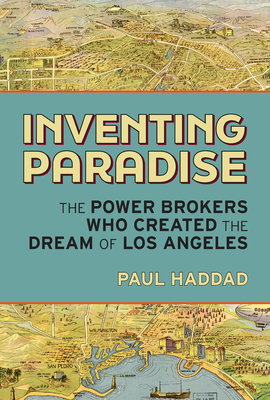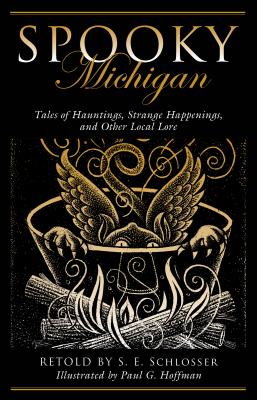
Haddad, Paul
Inventing Paradise: The Power Brokers Who Created the Dream of Los Angeles traces the improbable rise of Los Angeles through the prism of six visionaries who had outsize influence on the city's growth: Phineas Banning, Harrison Gray Otis, Henry Huntington, Harry Chandler, William Mulholland, and Moses Sherman.
In the late 1870s, Los Angeles was a violent, dusty, 29-square-mile pueblo with a few thousand souls, largely unchanged since its founding in 1781. By 1930, its size had swelled to within 96% of its current 468 square miles, housing a staggering 1.2 million people. In just 50 years, L.A. had joined the ranks of other world-class cities.
In the tradition of Mike Davis's classic work City of Quartz, Paul Haddad (Freewaytopia and 10,000 Steps a Day in L.A.) debunks many myths about the City of Angels with a wildly entertaining narrative that sheds new light on the fascinating birth of modern Los Angeles. Power came from a select few, whose triumphs, scandals, and correspondence are well documented in Inventing Paradise, along with other little-known facts about L.A. history, including:
Haddad also covers the heavy costs that came with creating paradise in such a short period of time, including car dependency, environmental problems, and deep-seated inequities between wealthy white Angelenos and people of color due to racist policies. All have left an imprint on present-day Los Angeles.
Los Angeles is a city that should not exist--and yet it does. Through Inventing Paradise, Haddad shows readers that Los Angeles is not a paradise found, but a paradise that was willed into existence, owing to the collective vision of these six Gilded Era-born tycoons.
member goods
listens & views

MAMBO FEVER: ULTRA LOUNGE 2 ...
by MAMBO FEVER: ULTRA LOUNGE 2 / VARIOUS
COMPACT DISCout of stock
$10.75






